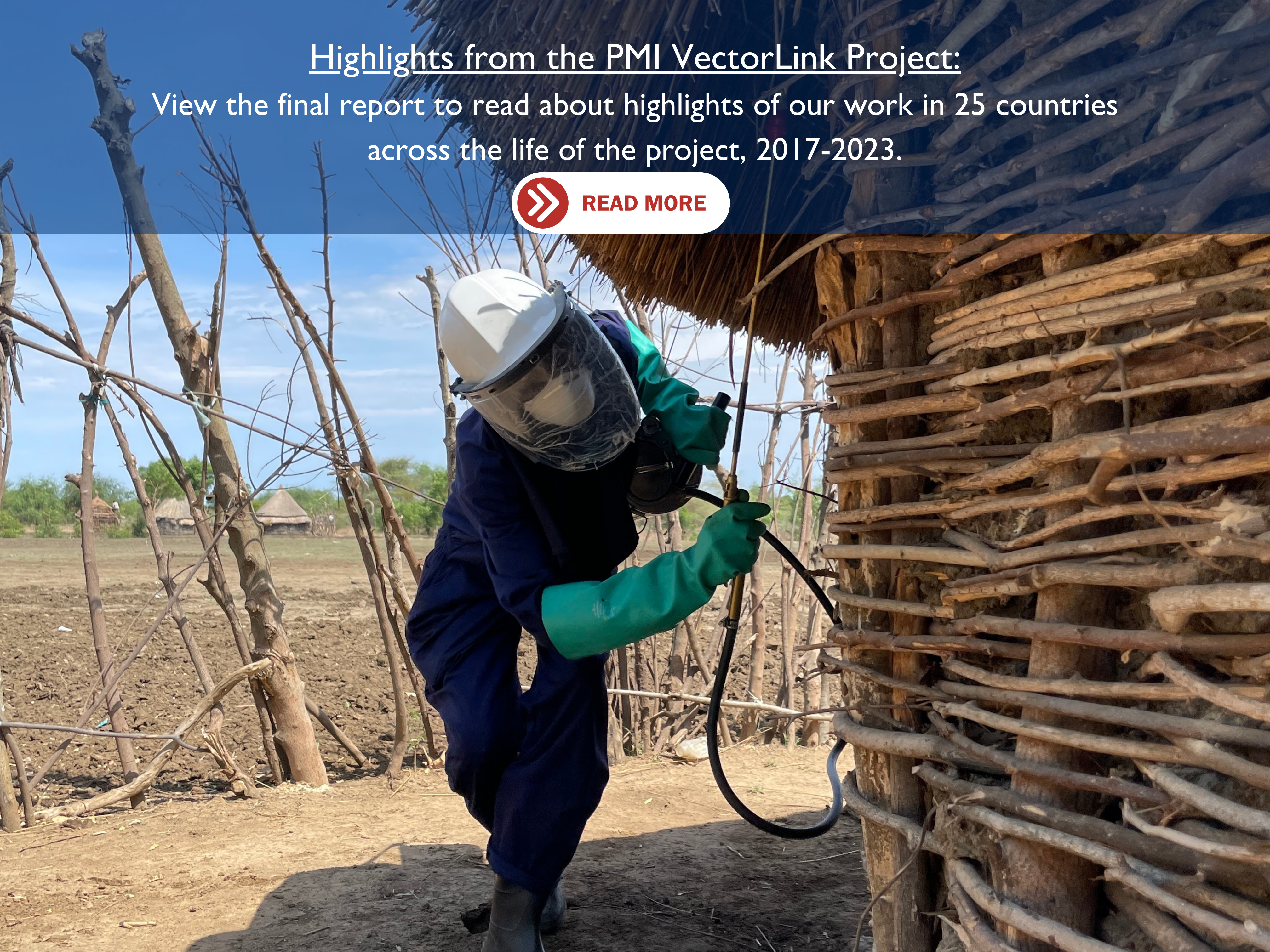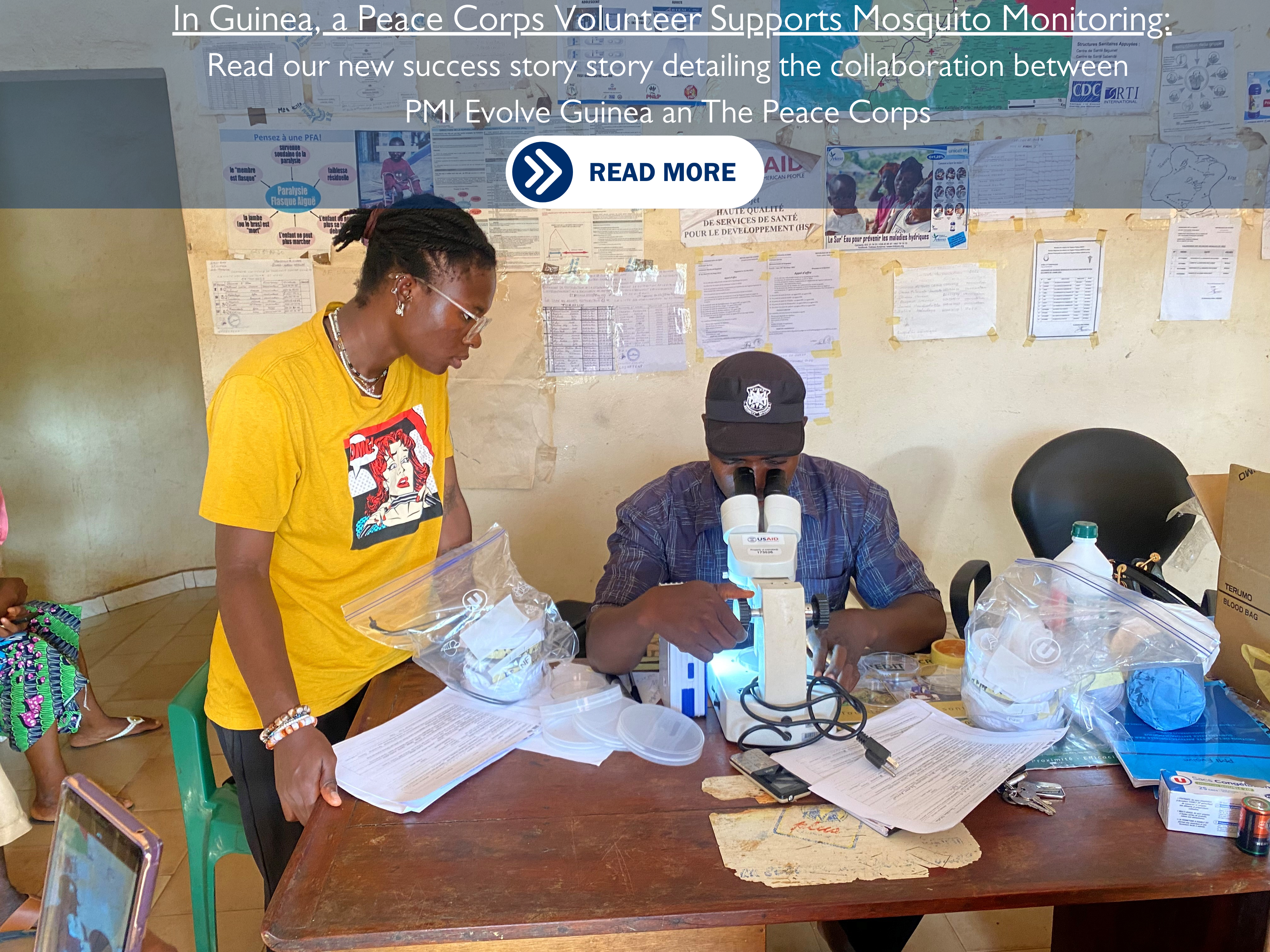The U.S. President’s Malaria Initiative (PMI) VectorLink Project collaborates with national and local governments to identify, study, and record where malaria-transmitting mosquitoes live, how they feed, when they rest, and the density of their population. In Kenya, PMI trained community […]
Read MoreStories
Women in Entomology
From the Field to the Lab, Women Fight to End Malaria Gains in reducing morbidity and mortality from malaria depend on the use of effective insecticides in vector control measures, such as IRS and ITNs. With more people qualified to […]
Read MoreFocusing on An. stephensi in Ethiopia
WORLD MOSQUITO DAY: FOCUSING ON THE INVASIVE AN. STEPHENSI IN ETHIOPIA An Asian malaria vector is invading Ethiopia and other parts of sub-Saharan Africa. If this invasive vector continues to spread, large parts of Ethiopia could see dramatic increases in incidence of […]
Read MoreCommunity Leaders Help to End Malaria
In Tatale-Sanguli District (TSD) of Northern Ghana malaria mortality dropped by 80 percent from 2018 to 2020, according to reports from the regional health directorate. This decrease corresponds to the support the district started receiving from the U.S. President’s Malaria […]
Read MorePMI VectorLink Extended to further Its Work in Ending Malaria
The U.S. President’s Malaria Initiative (PMI) recently extended the PMI VectorLink Project another 12 months, continuing its work to September 2023. Led by Abt Associates in partnership with Population Services International and PATH along with the support of Liverpool School of Tropical Medicine, Malaria […]
Read More




